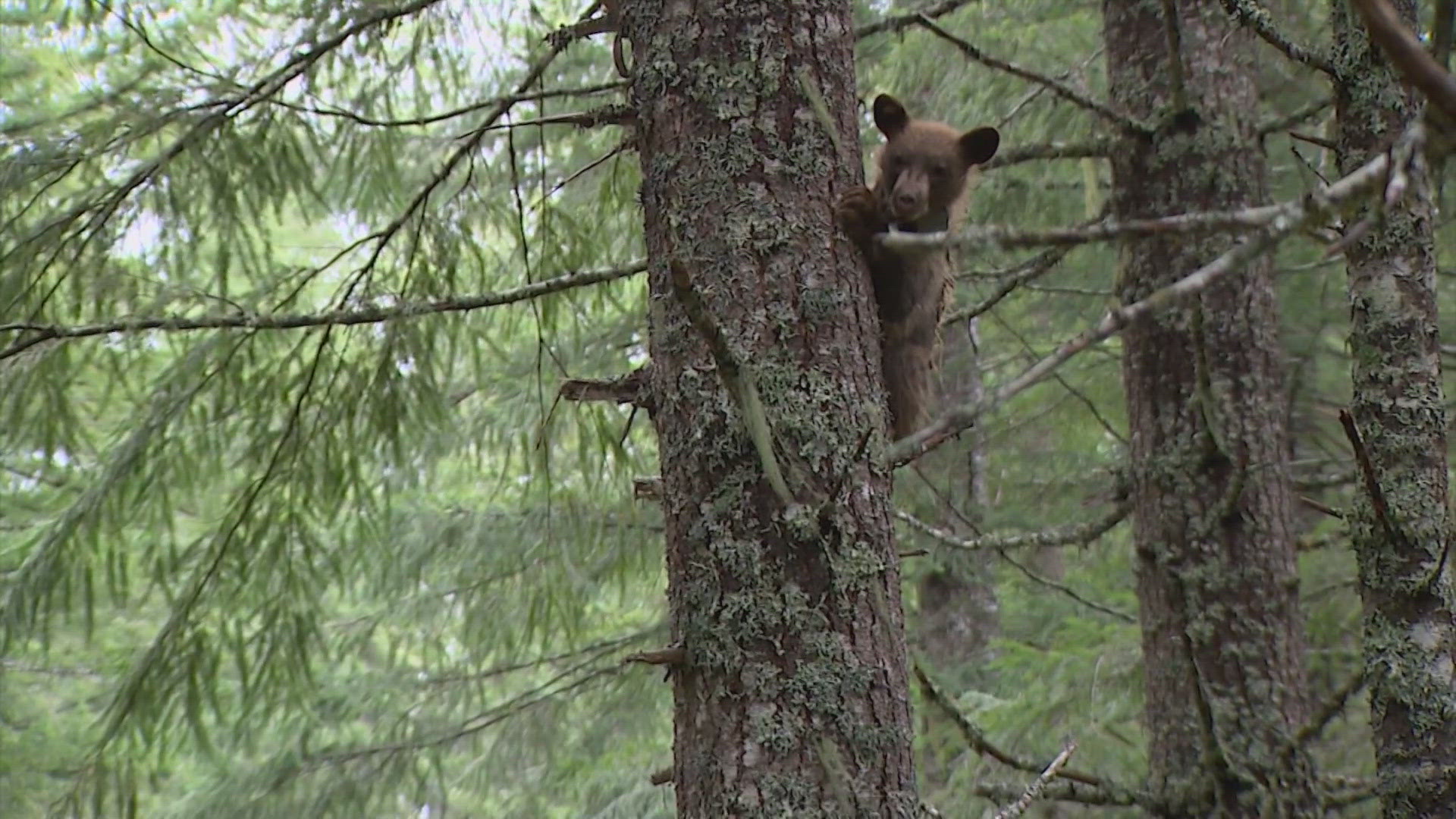SKYKOMISH, Wash. — Two bear cubs were released back into the wild Tuesday after they were found wandering the town of Concrete in September 2023.
At the time they were found, the cubs were underweight and had been orphaned by their mom.
Wildlife officials said they likely would have died if humans hadn't stepped in to save them.
State wildlife workers said they wanted the rescue experience to be as unpleasant as possible for the two black bears so that the bears would learn to fear people and stay far away.
Dogs specifically trained to hunt the bears did the trick.
"The dogs will get real barky, and scare the bears a bit. That's all part of it. They don't hurt them. It makes their last contact with people a negative one," said Washington Fish and Wildlife Officer Rich Beausoleil.
For the past 8 months, veterinarians at Lynnwood's PAWS Wildlife Center cared for the bears. From there, the two were tranquilized and placed in steel containers for their trip back home.
"If we can help them and we know what we're doing works, then why not? Let's intervene and let them live a long life," said Beausoleil.
After a full rehabilitation, the bears were released into the forest; One sprinted straight into the woods. The other quickly found sanctuary in a nearby tree — his healthy fear of people is sinking in.
Wildlife officials believe the bears will soon fully reacclimate to their native surroundings and live normal bear lives.
"The light bulb has already gone off," said Beausoleil. "Now, they're searching for food and they've been eating anything they can find."
Three summers ago, four other black bear cubs were rescued by PAWS after a wildfire killed their mother and left them burnt, blind and barely able to walk. Three survived and were released.
State wildlife officials believe bigger, more frequent wildfires will likely continue to put a strain on animals and those who care for them.
"Fire isn't necessarily a bad thing. It's the widespread, man-made ones that are fueled by climate change that take it to a place where we get concerned about that kind of stuff," said Beausoleil.
There are currently 18,000 to 20,000 black bears in Washington.
The state Department of Fish and Wildlife's rehabilitation and release program has been very successful with only three out of approximately 130 bears captured coming into contact with humans again.
Wildlife officials will monitor the bears for two years — or until the batteries in their electronic collars wear out.
They'll be looking at where the bears are living, how they're surviving and how biologists can use that information to keep bears safe in the future.

